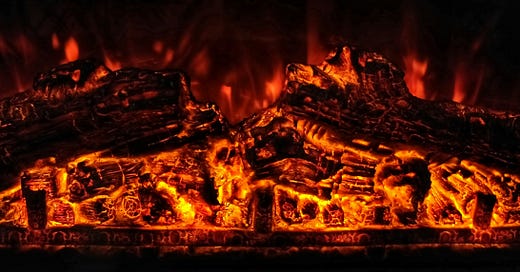How much patience does God have for our sins? That's what today's readings are all about.
Reading 1
Jer 14:17-22
Let my eyes stream with tears day and night, without rest, Over the great destruction which overwhelms the virgin daughter of my people, over her incurable wound. If I walk out into the field, look! those slain by the sword; If I enter the city, look! those consumed by hunger. Even the prophet and the priest forage in a land they know not.
Have you cast Judah off completely? Is Zion loathsome to you? Why have you struck us a blow that cannot be healed? We wait for peace, to no avail; for a time of healing, but terror comes instead. We recognize, O LORD, our wickedness, the guilt of our fathers; that we have sinned against you. For your name's sake spurn us not, disgrace not the throne of your glory; remember your covenant with us, and break it not. Among the nations' idols is there any that gives rain? Or can the mere heavens send showers? Is it not you alone, O LORD, our God, to whom we look? You alone have done all these things.
Jeremiah is here confronted with the worst kind of evil--war. Bodies cover the ground in open fields; in cities, where women and children fled for safety, there's no food. Those who survive have lost all hope, and many no longer believe in God and His prophets.
Jeremiah asks why. He acknowledges their sin, but he also remembers God's promise to be the god of Israel. Despite God's just punishment, Jeremiah refuses to turn to other gods, who he knows are false.
Can we remain as faithful in the face of tragedy and privation?
Responsorial Psalm
Ps 79:8, 9, 11 and 13
R. (9) For the glory of your name, O Lord, deliver us.
Remember not against us the iniquities of the past;
may your compassion quickly come to us,
for we are brought very low.
R. For the glory of your name, O Lord, deliver us.
Help us, O God our savior,
because of the glory of your name;
Deliver us and pardon our sins
for your name's sake.
R. For the glory of your name, O Lord, deliver us.
Let the prisoners' sighing come before you;
with your great power free those doomed to death.
Then we, your people and the sheep of your pasture,
will give thanks to you forever;
through all generations we will declare your praise.
R. For the glory of your name, O Lord, deliver us.
This is a song of collective lament. When Israelites recognize their sins, they don't ask for forgiveness because they deserve it. God doesn't owe them anything.
Their hope is that their salvation at God's hands will serve as an example for all. God's glory shines greater because of their lack.
Alleluia
R. Alleluia, alleluia.
The seed is the word of God, Christ is the sower;
all who come to him will live for ever.
R. Alleluia, alleluia.
This acclamation makes more sense in the context of the Parable of the Weeds, rather than The Sower.
Gospel
Mt 13:36-43
Jesus dismissed the crowds and went into the house. His disciples approached him and said, "Explain to us the parable of the weeds in the field."
He said in reply, "He who sows good seed is the Son of Man, the field is the world, the good seed the children of the Kingdom. The weeds are the children of the Evil One, and the enemy who sows them is the Devil. The harvest is the end of the age, and the harvesters are angels. Just as weeds are collected and burned up with fire, so will it be at the end of the age. The Son of Man will send his angels, and they will collect out of his Kingdom all who cause others to sin and all evildoers. They will throw them into the fiery furnace, where there will be wailing and grinding of teeth. Then the righteous will shine like the sun in the Kingdom of their Father. Whoever has ears ought to hear."
Here, Jesus explains last Saturday’s Gospel.1
First, He dismissed the crowd, the unbelieving Israelites. This whole chapter has been a discourse of parables, where Jesus is teaching anyone who will listen. But now, it's time to directly address the faithful, who will carry the good news after His time on EArth.
When speaking publicly, His parable emphasized the patience God has for sinners. But here in private, Jesus' explanation focuses more on eschatology, what will happen to us the end of time. It's a terrible image of Hell, which we should all hope to avoid. We can have faith and confidence in God's patience, but we shouldn't test it.
What do you need me for?



